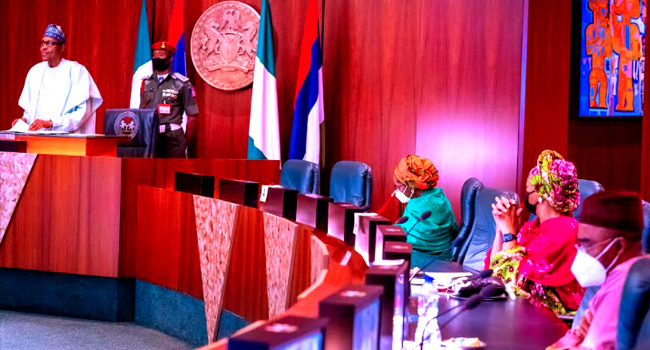News
ICRC Incorporates 158 Projects Into PPP Pipeline in 2020 – Report

The Infrastructure Concession Regulatory Commission (ICRC) said 158 projects from different sectors were incorporated into the Public-Private Partnership (PPP) project pipeline in 2020.
This is according to the 2020 Annual Report and Accounts of the organisation.
According to the report which was obtained by the News Agency of Nigeria (NAN) on Sunday in Abuja, the projects went through various stages of development, procurement and implementation.
It also said the Federal Executive Council (FEC) gave approvals for some vital projects, which were earlier granted the Full Business Case (FBC) Compliance Certificates by the commission to pave way for eventual contract signing and commercial close.
The projects included the development of the Bonny Deep Seaport in Rivers, the development of Ibom Deep Sea Port in Akwa Ibom and an automated ticketing portal for the Nigerian Railway Corporation.
Others were upgrading, expansion and operation of the Nigerian Correctional Services shoe/garment/leather factories in Aba-Abia and Janguza-Kano State and renovation of the students’ hostel at Kaduna Polytechnic.
It also said that Outline Business Case (OBC) Compliance Certificates were granted for some key projects in the transport sector of the economy, adding that some of them had proceeded to the procurement stage while others would soon follow.
They were the development of the Truck Transit Parks in Obollo-Afor, Enugu State; Aviele and Benin Bye-Pass, Edo; Lokoja, Kogi; and Illela, Sokoto State.
Others were concession of the four International Airport Terminals in Abuja, Lagos, Kano and Port Harcourt and the Federal Ministry of Works and Housing Highway Development and Management Initiative (HDMI) for 12 selected routes.
The ICRC said that within the year under review, it began the process of regularising all PPP projects by whatever name they were called and brought them under the commission’s custody to enable their subjection to its regulatory oversight.
“An important reason for the regularisation is to ensure revenues accruing to the government go into a Special Concession Account (SCA) set up for this purpose.
“The approval for the implementation of the SCA was given through a circular issued by the Minister of Finance, Budget and National Planning in June 2020.
“Already, N2.4 billion has accrued to the government as the concession fee for the development of the Gurara Dam II Project.”
The report, however, identified a lack of dedicated funding to develop, promote and implement PPP projects as a setback that slowed the development of some projects.
It also said that strong political will and commitment were needed to strengthen the PPP framework and ensure the process was not undermined or truncated due to adverse interests.
The report also said there was a lack of adequate enforcement powers over PPP contract agreements and disputes.
It added that there was a bill to address identified gaps in the existing law of the commission pending before the National Assembly.
“The proposed amendment seeks to rename the ICRC as PPP Regulatory Commission to accommodate other forms of PPP and expand its powers to impose appropriate sanctions to ensure compliance with provisions of the Act and regulations thereof.
“The urgent passage of the bill will help ICRC to establish its independence, improve its regulatory oversight and exercise adequate control over the process.”
While proposing to ensure accountability in PPP revenue in 2021 through the SCA, the commission said it would effectively monitor revenue accruing to the government from PPP projects and add more projects to the PPP pipeline.
It would also strengthen the capacity of PPP units of government agencies to structure transactions and monitor the progress of projects which were awarded or completed to ensure that contractual obligations were being met.
NAN recalls that ICRC was established to regulate PPP activities in Nigeria to address the physical infrastructure deficit which hampered economic development.